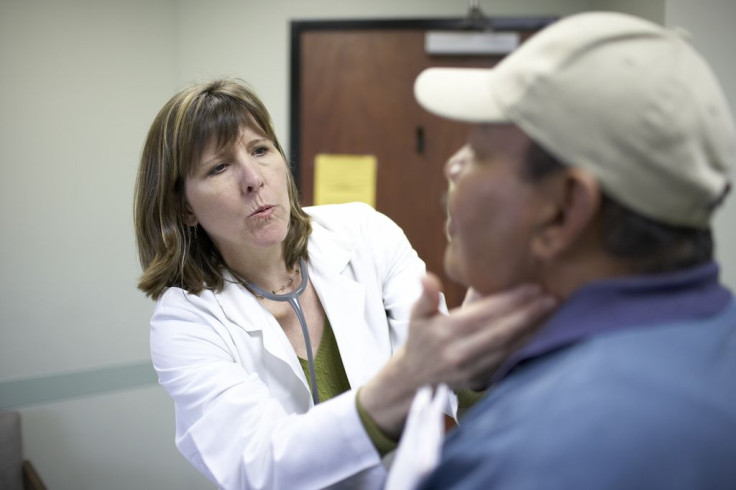Patient Care: Doctors Can Ease Patient Suffering By Asking 'What's The Worst Part Of This?'

Modern medicine in the Western world relies primarily on treating existing illnesses with drugs or unnecessary procedures and a quick turnaround in the doctor’s office in order to treat more people. In the midst of all this hectic chaos, doctors will skim over a patient’s record and medical history, get a mere glimpse into their emotional lives, and leave mental health care to the side.
But Dr. Ronald Epstein, a University of Rochester professor, wants to change the way doctors approach their patients. Suffering is seen in all corners of hospitals and medical centers — from the emotional pain of a mother who just lost an unborn baby to an older man facing a terminal illness, yet doctors often don’t address it.
In a new essay published in the Journal of the American Medical Association, Epstein and a co-author, oncologist Anthony Back of the University of Washington, reviewed medical literature on the ways doctors approach suffering. They found that an approach to suffering is rarely discussed in the medical world, and that this needs to change.
“Physicians can have a pivotal role in addressing suffering if they can expand how they work with patients,” the authors wrote. “Some people can do this instinctively, but most physicians need training in how to respond to suffering — yet this kind of instruction is painfully lacking.”
Epstein and Back note that physicians can improve their approach by listening to the patient and learning about his/her experience. In addition to the typical “diagnosing and treating,” the authors argue that doctors should also “turn toward” the patient, and recognize their suffering. They can do that by asking questions like, “What’s the worst part of this for you?” Sometimes an acknowledgment that their pain is real, and that it matters to someone, is all a patient needs to open up.
Next, the authors note that doctors can “refocus and reclaim,” to help steer patients towards what’s most meaningful in their lives. This is especially important in cases where drugs and treatments often can’t cure the root of suffering, such as in chronic illnesses. Healing often occurs when the physician approaches the patient as a whole — as a human with emotions and a mind rather than just a body needing to be treated — and that is the entire notion behind holistic medicine.
Epstein has been a proponent of mindful and holistic medicine for years, and his work is one of the most widely cited in medical literature in the U.S. One of his most famous papers from 2002 explains the need for the scientific community to redefine “professional competence” among doctors, and to expand basic core knowledge of medicine, reasoning, judgment, management of ambiguity, professionalism, time-management, and communication skills.
Asking doctors to approach patients as whole people “is a tall order,” Epstein wrote, “yet, it strikes us as more feasible than ever because of evidence that programs promoting mindfulness, emotional intelligence, and self-regulation makes a difference.”
Source: Epstein R, Back A. Journal of the American Medical Association. 2015.



























